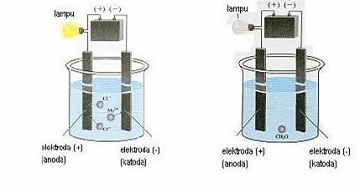 For a Muslim, choosing “Halal” foods and drinks is a must. The word “Halal” literally means permissible and in translation, it is usually used as lawful. With today’s manufacturing and food production, it is hard to know what goes in the food we eat. Food labeling helps, but not everything is listed, and what is listed is often a mystery. One of which, Indonesian regulations explain that allowable alcohol contents for fermented beverages (naturally exist) must be lower, must be less than 1% (LPPOM MUI 2008). Alcohol is a generic term for any organic compound having a functional group called a hydroxyl group attached to a carbon atom.
For a Muslim, choosing “Halal” foods and drinks is a must. The word “Halal” literally means permissible and in translation, it is usually used as lawful. With today’s manufacturing and food production, it is hard to know what goes in the food we eat. Food labeling helps, but not everything is listed, and what is listed is often a mystery. One of which, Indonesian regulations explain that allowable alcohol contents for fermented beverages (naturally exist) must be lower, must be less than 1% (LPPOM MUI 2008). Alcohol is a generic term for any organic compound having a functional group called a hydroxyl group attached to a carbon atom.
For measuring alcohol concentration, especially to monitor and verify the ethanol content in beverages, a group of students of Bogor Agricultural University (IPB) created a tool they named it "Ad-Toam". Ahmad Khairul Reza and three students of the Faculty of Mathematics and Natural Sciences of Bogor Agricultural University (FMIPA IPB), namely: Sejahtera, Anisah Rahajeng, Kartika Sari, and Intan Nurhasanah created the sensor-based technology equipment to detect halal food and beverage.
"The finding of such innovation, of course improve their believe that foods and beverages they purchase or consume are “Halal”. Especially for the Muslims to protect them from haram products, "said Ahmad Khairul as the team leader.
The methods to detect the various ethanol measuring techniques included HPLC method, electrophoresis, GCMS, spectrometric raman and GC. All of these methods have been widely used but, they are time-consuming and expensive.
The newly created “Ad-Toam”, it is practical, relatively fast and affordable. It uses simple materials such as sensor, electrochemical, nickel, platinum, and other supporting equipment.
To explain how “Ad-Toam” ethanol detecting instrument works, sensor for ethanol is using nickel and platinum as they are good electric conductor of the objects (alcohol content). See what happens to the voltage and current as the resistance in the circuit is increased, the higher content of furfuryl alcohol was found. He also explained, sensors that contain a resistor utilize platinum and nickel that changes resistance value. The team plans to have pilot test the tool before it is going to be tested in the field.
"Then they plan to implement field tests somewhere around IPB campus, or in restaurants in Bogor. We hope this innovation will facilitate the detection of halal food or beverage products for the government, LPPOM MUI and the community. Then also propose to get its patent, and publish as scientific articles in both national and international journals, "said Ahmad.









